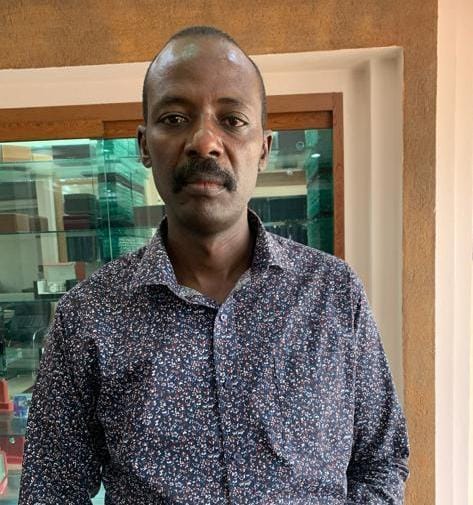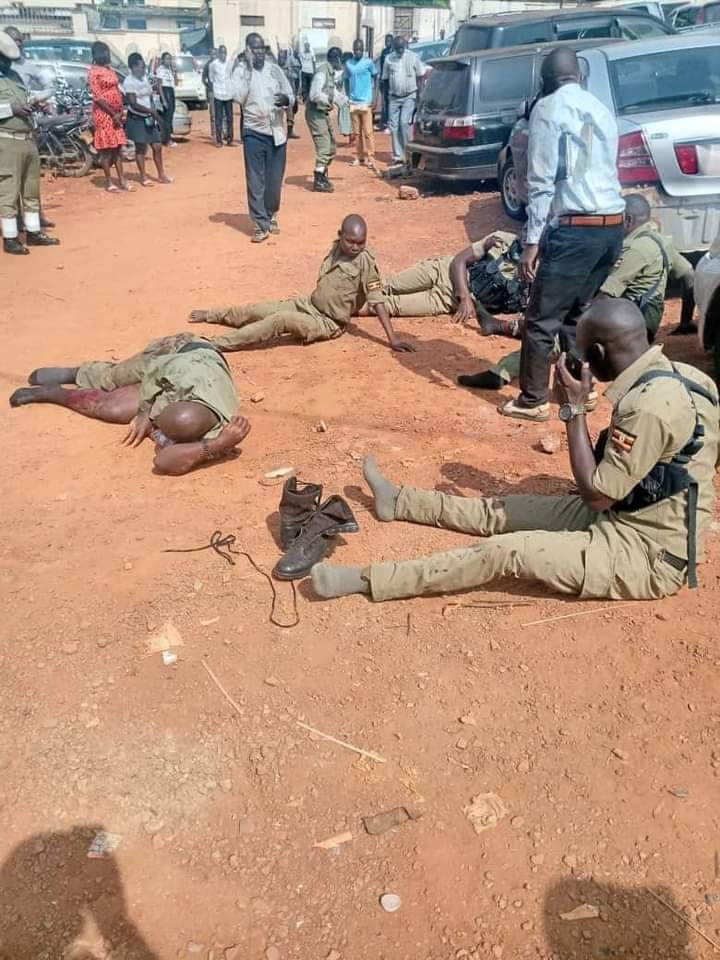The death toll of Tuesday twin bombings in Kampala has increased from six to seven after a Kampala businessman George Katana who had been admitted at Mulago with injuries died on Tuesday evening.
The deceased who was doing printing business along Parliament Avenue was hit by shrapnel after two suicide bombers blew themselves up out Jubilee building near parliament.
The late Katana was rushed to Mulago hospital but didn’t make it out of the theatre. “It’s a dark day for the family. He couldn’t make it out of the theatre,” a friend told this website.

He will be buried on Thursday at his home in Nabitanga, Ssembabule district. Three people died on spot while 33 were injured in the twin bombings that the Central Police Station and Jubilee building which houses the office of the Inspector General of Government.
The Islamic State claimed responsibility for the attack and said their fighters set out with bags loaded with explosives had hit their targets.
This is the third attack by the ISIS – affiliated terrorist group on Uganda within three weeks. Using its telegram account, ISIS claimed responsibility for an attack on a pork restaurant in Kampala on October 24, 2021 which killed a waitress and injured three.
A day after, another bomb was detonated in a bus that was travelling from Kampala to Bushenyi in the western part of the country.
The police said on Tuesday that the terrorist group was assembling the bombs locally. “These kinds of threats remain significant because IEDs[ Improvised Explosive Devices] and suicide bomb jackets can easily be built from common household items found in local markets, retail shops and supermarkets”.
The ADF also known as Madina at Tauheed Wau Mujahedeen, is also responsible for many attacks across North Kivu and Ituri Provinces in eastern DRC.
Under the leadership of Seka Musa Baluku, the ADF has been notorious in this region for its brutal violence against Congolese citizens and regional military forces, with attacks killing over 849 civilians in 2020 alone, according to a United Nations report.
The ADF was previously sanctioned by the U.S. Department of the Treasury and the United Nations under the UN Security Council’s DRC sanctions regime in 2014 for its violence and atrocities.
The U.S. Department of the Treasury also sanctioned six ADF members, including leader Seka Musa Baluku, in 2019 under the Global Magnitsky sanctions program for their roles in serious human rights abuse, with a subsequent United Nations sanctions listing for Baluku in early 2020 under the DRC sanctions program.
![]()



























